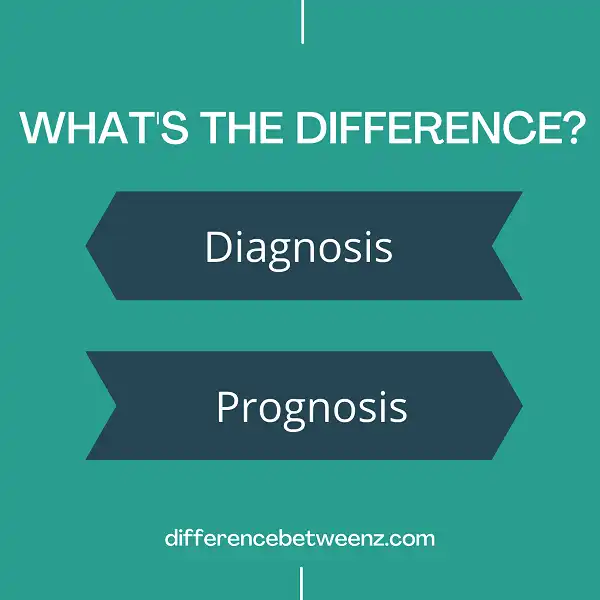In the medical world, there are two important terms that are often confused: diagnosis and prognosis. Though they sound similar, these words have different meanings. A diagnosis is the identification of a disease or condition, while a prognosis is an estimate of how a disease will progress or how long someone with a particular illness will live. In this blog post, we’ll explore the difference between diagnosis and prognosis in more detail.
What is Diagnosis?
A diagnosis is the determination of the nature and cause of a medical condition. Diagnoses are made through a variety of tests and procedures, including physical examinations, laboratory tests, radiological examinations, and psychological evaluations. The process of making a diagnosis can be divided into three main steps:
- Gathering information about the patient’s symptoms and medical history
- Performing tests and procedures to identify the cause of the symptoms
- Confirming the diagnosis with additional testing or by observing the response to treatment.
In some cases, a diagnosis can be made based on the results of a single test or procedure. However, in most cases, it is necessary to use a combination of different methods to arrive at a final diagnosis. The accuracy of a diagnosis is important in order to ensure that the correct treatment is provided.
What is Prognosis?
Prognosis is the potential future outcome of a disease. It is typically estimated by a physician after examining a patient and reviewing their medical history. The purpose of a prognosis is to give patients and their families an idea of what to expect in the coming months or years. While the prognosis is usually based on statistical data, it is important to remember that every individual is different and will experience their disease in unique ways. Some people may experience a better prognosis than expected, while others may not fare as well. Ultimately, the prognosis is only one tool that patients and families can use to plan for the future. It should be used alongside other information, such as the patient’s treatment preferences, to make decisions about care.
Difference between Diagnosis and Prognosis
A diagnosis is the determination of the cause of a person’s symptoms and signs. It is often referred to as the “art” of medicine because it often requires a physician to use his or her experience, clinical judgment, and knowledge of the patient to make a decision. A prognosis, on the other hand, is a prediction of the course of a person’s disease. It is based on an understanding of the natural history of the disease and the patient’s current state of health. Prognoses are often given in terms of chance or probability (e.g., “there is a 50% chance that the disease will improve”). While both diagnoses and prognoses are an important part of medicine, they are distinct concepts and should not be confused.
Conclusion
The difference between diagnosis and prognosis is an important one to understand. A doctor’s diagnosis of a patient tells them what disease or condition the patient has, while a doctor’s prognosis tells the patient how likely it is that they will recover from the disease or condition. This information can be critical for patients and their families when making decisions about treatment options. Now that you know the difference between diagnosis and prognosis, make sure you discuss this with your doctor if you have questions about your own health.


